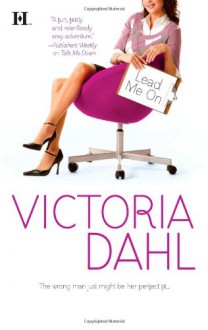
I love, love, love the other two books in the Turner trilogy, Unveiled and Unraveled. However, while this one is as smartly crafted as everything Courtney Milan writes, it doesn't pack the same emotionally-satisfying punch. I'll explain, but first, the plot summary: Mark, the youngest of the Turner brothers, has published a Practical Guide to Chastity to great acclaim, making him England's most famous male virgin. However, when Mark is offered a political appointment, another candidate for the job hatches a plot to discredit him: he hires a courtesan, Jessica, to seduce Mark and publish an account in the papers.
Ordinarily, this sort of gender-flipping of common romance tropes would be catnip to me. A male virgin? Yes, please. A sexually-liberated heroine pursuing him, to the prospective peril of *his* reputation, not hers? Sign me up!
But there is the first problem: Jessica is *not* a sexually-liberated heroine. In fact, she is probably more imprisoned by her sexuality than the most pristinely innocent miss. After seven years of working as a courtesan, she is burned out on her profession and in the grips of a profound depression that leaves her unable to feel anything: not the warmth of the sun on her face and certainly not sexual pleasure. When men touch her, she flinches. She pursues Mark out of cold desperation, since she is out of money and knows she doesn't have it in her to be a working girl anymore.
I often struggle with romances where the conflict comes from one character's deception of the other. Unveiled involved deception, too, in that the heroine, Margaret, posed as someone other than herself in order to get close to the hero, and I'm not quite sure why this deception bothers me so much more than that. I think it's because once they came to really know and like each other, Jess could have told Mark the truth and trusted him to help her (but she didn't), whereas Margaret trusted Ash enough to reveal her disguise, even though doing so didn't solve the tangle of familial loyalties that kept them apart. Also, Margaret was motivated by a desire to help her brothers, while Jessica's masquerade is more self-interested (although I appreciate Jessica's survival instinct). Finally, even if Margaret had succeeded in her goal (to thwart Ash in his aim to steal her family's duchy), Ash had the financial wherewithal and social standing that he would've been okay; by contrast, Jessica's planned seduction aims to topple the very foundations that make Mark the man he is--his chastity, his integrity, his reputation, his sense of self.
The other thing that bothers me about Unclaimed is, frankly, Mark. He's too good. He's whatever the male equivalent of a Mary Sue is: an Eddie Haskell, perhaps. I know it's ironic that I should feel that way, since in the book Mark is always protesting when people treat him like a saint just because he wrote a book about chastity. He feels lust and pride and he has a temper, he constantly reminds people. He isn't perfect... until one remembers that, in Romancelandia, lust and pride and temper are hardly mortal flaws in a hero. In my opinion, he is TOO perfect for me to really pull for him as a character.
Even though I don't like the romance of this book nearly as well as the other two, if you like overt feminist themes with your romance, pick this book up just for the pleasure of watching Mark deliver masterful set downs to upright Victorian gentlemen who would engage in slut-shaming. "There's no such thing as a fallen woman," he says more than once; "You just have to look for the man who pushed her."


 Log in with Facebook
Log in with Facebook 









